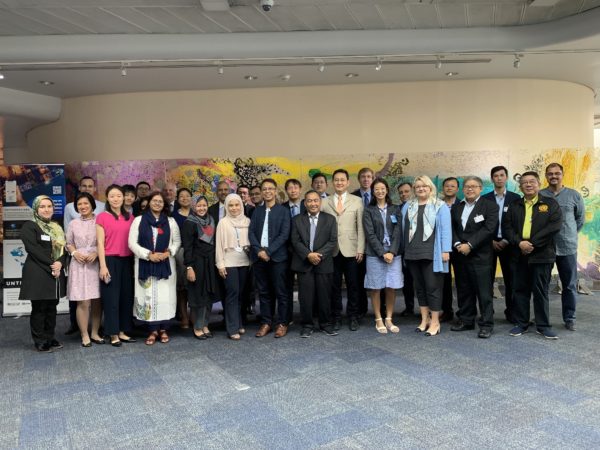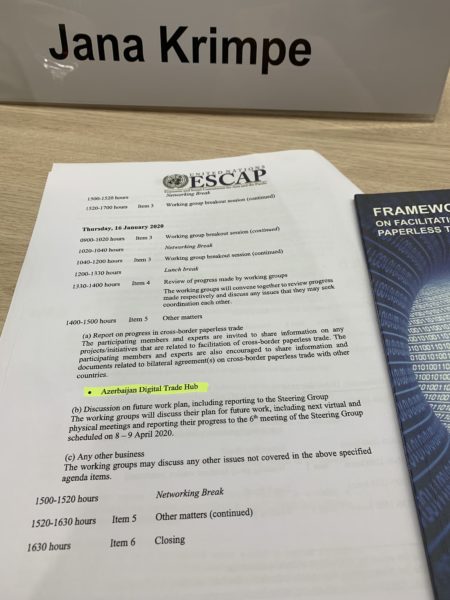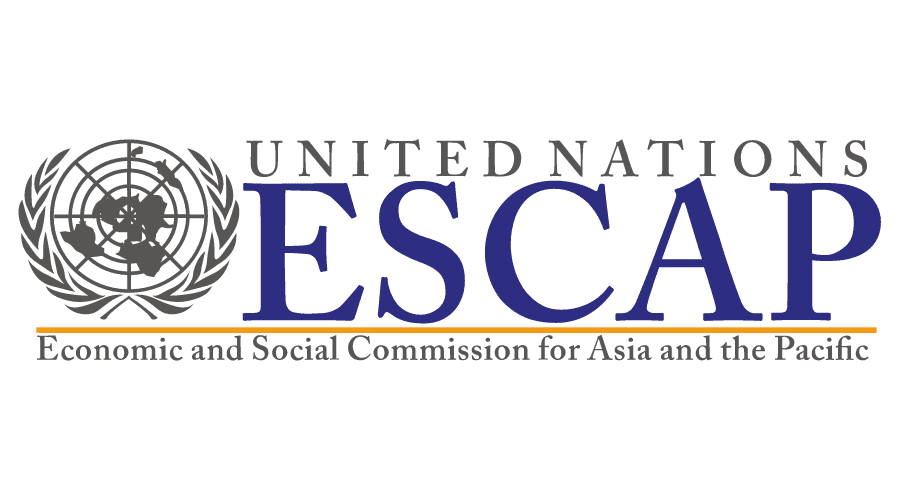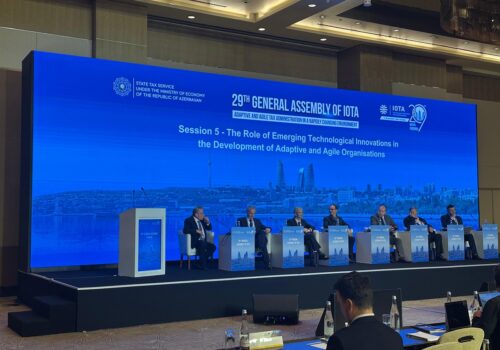Cross-border trade digitalization is a key instrument for expanding trade competitiveness, and addressing upcoming challenges, such as the surge in small shipments associated with cross-border e-commerce and the growth of the digital economy. It’s calculated that usage of paperless trade could diminish the international trade costs by 25%, which saves approximately $600 billion dollars to the region annually. As practice shows, though some countries digitalize most trade procedures at the national level, but paper is still required because acceptable locally electronic data and documents aren’t recognized in other countries. In order to respond to these requirements, a group of more than 25 Asia-Pacific economies operated together for developing a Framework Agreement on facilitation of Cross-Border Paperless Trade in Asia and the Pacific. The working groups jointly discussed the following supporting key documents: Legal and technical readiness assessment checklists; designing a national policy framework; developing an individual action plan; capacity building strategy; mutual recognition mechanism. In the last day of the meeting the working groups convened together for reviewing progress during the session and shared thoughts about issues where they can seek coordination with each other.

As a member and expert of the Working Groups, Mrs. Jana Krimpe, the CEO and Founder of B.EST Solutions Company – the operator of Asan İmza and the Partner of the Digital Trade Hub of Azerbaijan (DTH) delivered speech on implementation of DTH as the best practice. Mrs. Krimpe emphasized the significance of this project not only in region but also in global level, and informed the working groups about the launch of DTH portal with outcomes and progresses for the last year. She also highlighted that DTH development will continuously strengthen the position of Azerbaijan as a center of digital trade in the region, enlarge the use of digital technologies in the social, economic and financial sectors, and also digitalize existing services, provide innovative services to expedite access to electronic services.
She has also presented the great work done by the State Customs Committee of Azerbaijan Republic and other public and private institutions to achieve the high position in the 2nd UN Global Survey on Trade Facilitation and Paperless Trade Implementation, which covers 120 countries and 47 measures related to the WTO’s Trade Facilitation Agreement (TFA), paperless trade, and inclusive development. Based on the report of 2019 on Digital and Sustainable Trade Facilitation in SPECA, Jana Krimpe underlined that: “Azerbaijan achieves high implementation rates of over 80%. Compared to the regional average, Kazakhstan and Uzbekistan have implementation rates, standing at 67% and 62% respectively. We would like to share our best practices and to achieve the best results in paperless trade globally.

I would like to mention the huge impact done by Mr. Igbal Babayev as the official representative of Azerbaijan in ESCAP. All together we will do our best to get the highest position in UN Global Survey and to become as the global Digital Hub implementing the latest innovations and best practices based on Public-Private-Partnership”.
It is worth to mention that strengthening the process of providing cross-border electronic services within the framework of the project with relevant legislation would open great opportunities for Azerbaijan in the future. The implementation of innovative mobile identity (Asan İmza) technology in Azerbaijan is added into the best practices of numerous reports of international organizations as a tool to ensure the transparency of service delivery to population, accessibility and inclusivity.
Please see the detailed information about the event here





